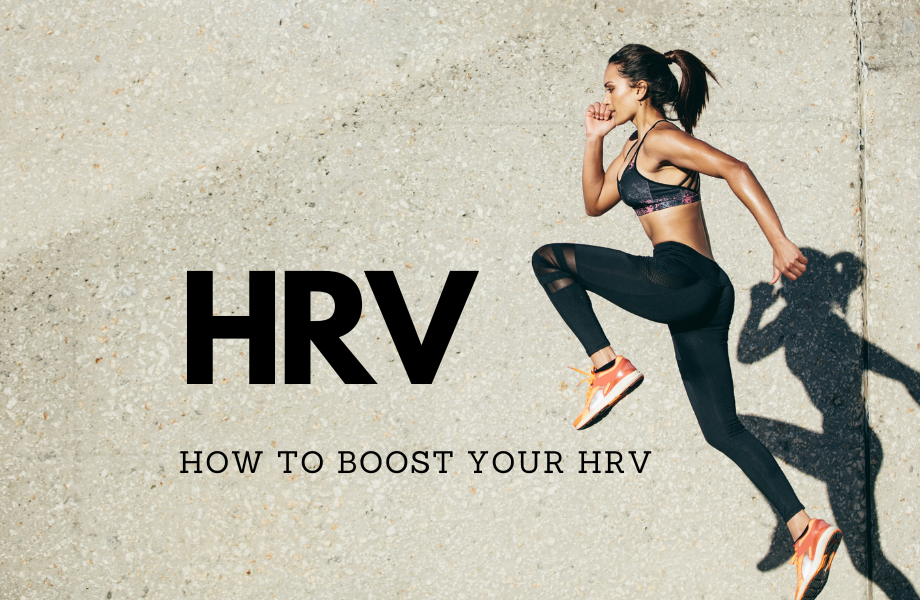Introduction
Heart Rate Variability (HRV) is a measure of the variability between successive heartbeats, and it reflects the flexibility and adaptability of the autonomic nervous system. A high HRV is associated with better health outcomes, such as reduced risk of cardiovascular disease, diabetes, and stress-related disorders. Therefore, improving your HRV can be a key strategy for optimizing your overall health and well-being. In this article, we will discuss some simple lifestyle changes that can boost your HRV and improve your overall health.
What is HRV and Why is it Important?
What is HRV?
HRV is the variation in time between successive heartbeats, which is measured by the time between R-peaks on an electrocardiogram (ECG). It is influenced by the interplay between the sympathetic and parasympathetic branches of the autonomic nervous system, which regulate the heart rate, blood pressure, and respiratory rate. A high HRV indicates a healthy balance between these two branches, while a low HRV indicates a state of sympathetic dominance or parasympathetic withdrawal, which is associated with various health problems.
Why is HRV Important?
HRV reflects the adaptability and resilience of the autonomic nervous system, which is crucial for maintaining physiological and psychological health. A high HRV is associated with better immune function, cognitive performance, emotional regulation, and stress resilience, while a low HRV is associated with increased risk of various health problems, such as cardiovascular disease, diabetes, anxiety, and depression.
Simple Lifestyle Changes to Improve HRV
Get Enough Sleep
Sleep is crucial for restoring and repairing the body, including the cardiovascular and nervous systems. Lack of sleep or poor quality sleep can impair HRV and increase the risk of cardiovascular disease. Therefore, it is recommended to aim for 7-9 hours of sleep per night and maintain a regular sleep-wake schedule.
Practice Relaxation Techniques
Stress is a major contributor to sympathetic dominance and low HRV. Therefore, practicing relaxation techniques, such as meditation, deep breathing, yoga, or tai chi, can help reduce stress and improve HRV. These techniques activate the parasympathetic branch of the autonomic nervous system, which promotes relaxation, digestion, and recovery.
Exercise Regularly
Exercise is a potent stimulus for improving HRV, especially aerobic exercise, such as running, cycling, or swimming. Exercise increases the demand for oxygen and energy, which stimulates the cardiovascular and respiratory systems and enhances the autonomic balance. However, it is important to avoid excessive exercise, which can cause stress and inflammation, and to adjust the intensity and duration according to your fitness level.
Improve Your Diet
Diet is a key factor in maintaining optimal health and HRV. A diet rich in fruits, vegetables, whole grains, and healthy fats, such as omega-3 fatty acids, has been shown to improve HRV and reduce the risk of cardiovascular disease. On the other hand, a diet high in saturated and trans fats, added sugars, and processed foods can impair HRV and increase the risk of inflammation and oxidative stress.
Limit Alcohol and Caffeine
Alcohol and caffeine are common substances that can affect HRV. Alcohol can suppress the parasympathetic branch and increase sympathetic activity, leading to decreased HRV and increased risk of arrhythmias and other cardiovascular problems. Caffeine, on the other hand, can increase sympathetic activity and decrease parasympathetic activity, leading to decreased HRV and increased risk of hypertension and anxiety. Therefore, it is recommended to limit alcohol and caffeine intake and to avoid consuming them before bedtime.
Practice Gratitude
Gratitude is a powerful emotion that can positively impact HRV and overall well-being. Research has shown that expressing gratitude can improve HRV and reduce stress and depression. Gratitude can be practiced in various ways, such as keeping a gratitude journal, writing thank-you notes, or simply reflecting on the positive aspects of your life.
Spend Time in Nature
Nature has a calming and restorative effect on the body and mind, which can improve HRV and reduce stress. Spending time in nature, such as hiking, gardening, or simply sitting in a park, can enhance the parasympathetic activity and reduce sympathetic activity, leading to increased HRV and relaxation.
Maintain Social Connections
Social connections are essential for emotional and physical health. Loneliness and social isolation can increase sympathetic activity and decrease HRV, leading to increased risk of cardiovascular disease and other health problems. Therefore, it is important to maintain meaningful social connections, such as spending time with friends and family, joining a community group, or volunteering.
Practice Mindfulness
Mindfulness is a state of non-judgmental awareness of the present moment, which can enhance the parasympathetic activity and improve HRV. Mindfulness practices, such as mindful breathing, body scan, or mindful walking, can help reduce stress and improve emotional regulation, cognitive performance, and overall well-being.
Conclusion
In conclusion, HRV is an important measure of cardiovascular and nervous system health, which can be improved by simple lifestyle changes. Getting enough sleep, practicing relaxation techniques, exercising regularly, improving your diet, limiting alcohol and caffeine, practicing gratitude, spending time in nature, maintaining social connections, and practicing mindfulness are all effective strategies for boosting your HRV and improving your overall health and well-being. If you want to see how we help to monitor HRV please check out our health and well-being App Visix www.vastmindz.com/visix
FAQs
- What is HRV?
HRV stands for Heart Rate Variability, which is the variation in time between successive heartbeats, reflecting the flexibility and adaptability of the autonomic nervous system.
- What causes low HRV?
Low HRV can be caused by various factors, such as stress, lack of sleep, poor diet, sedentary lifestyle, and certain health conditions.
- Can HRV be measured at home?
Yes, there are various devices that can measure HRV at home, such as heart rate monitors, smartwatches, and smartphone apps but one of the coolest ways is to use our product Visix which can be used in Microsoft teams.
- Is a high HRV always better?
Not necessarily. While a high HRV is generally associated with better health outcomes, it is also influenced by various factors, such as age, gender, fitness level, and health conditions.
- Can HRV be improved with medication?
Some medications, such as beta-blockers, have been shown to improve HRV in certain conditions, such as heart failure. However, lifestyle changes are usually the first-line approach for improving HRV and overall health.

Author:
Nikhil Sehgal
Improving health & wellbeing with AI | Founder/CEO @ Vastmindz | Forbes 30 Under 30


